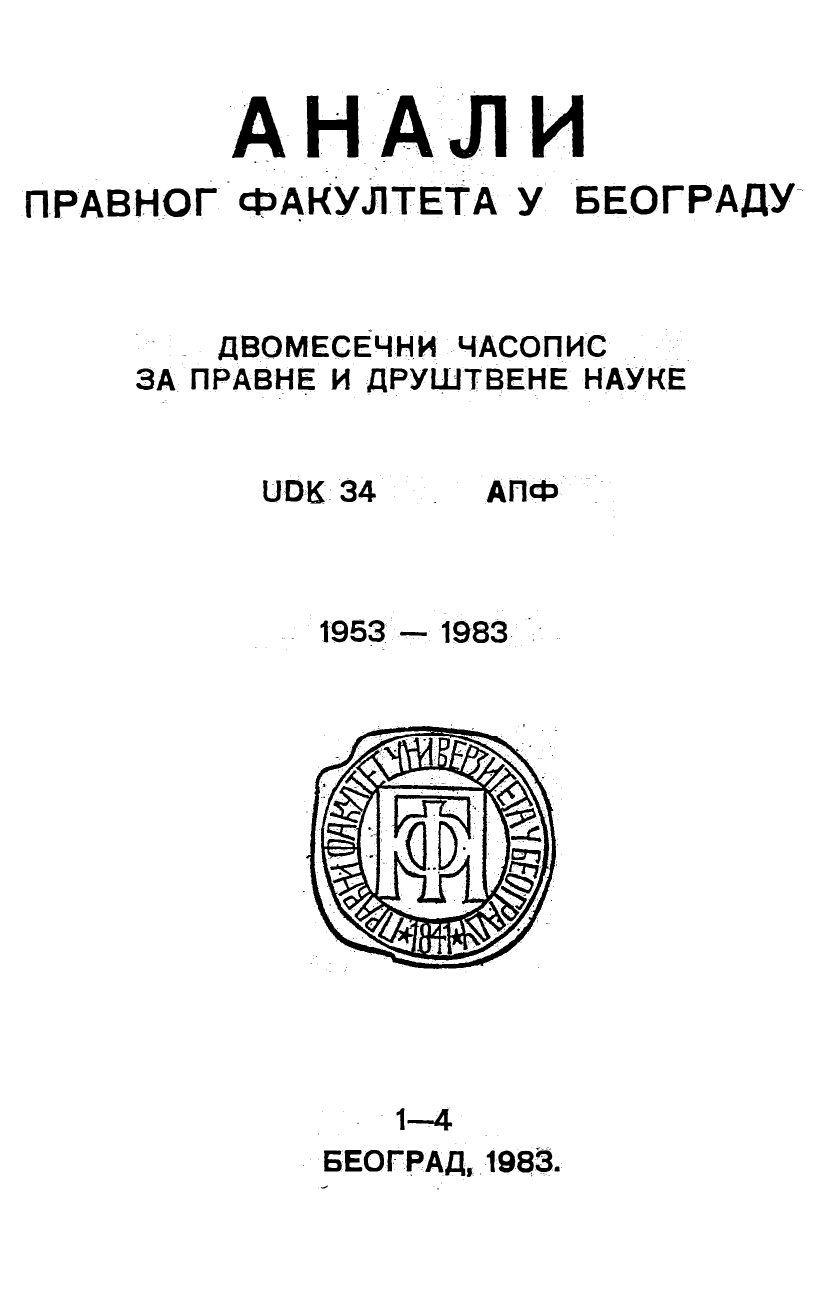ПРАВО НА ШТРАЈК И LOCK-OUT У ЗАПАДНОНЕМАЧКОМ ПРАВУ
THE RIGHT TO GO ON STRIKE AND LOCK-OUT IN WEST GERMAN LAW
Author(s): Budimir KošutićSubject(s): Law, Constitution, Jurisprudence, Labour and Social Security Law
Published by: Правни факултет Универзитета у Београду
Summary/Abstract: In West German law, strike and lock-out are not regulated by law, but by the decisions of the courts. Particularly significant are two decisions of the Federal Labour Court — the High Senate-from 1955 and 1971. In its decision from 1955, the Federal Labour Court determined the principles of legality of strikes organised only by the syndicates and directed against one or a certain number of employers. At the same time, the Court had determined two more conditions for the legality of strikes. Firstly, that the reason for the strike must be a matter regulated by the collective labour contract; secondly, that the social adequateness of the strike existed. The concept of social adequateness, however, is somewhat vague, for it provides for an obligation on part of the strikers to observe the so-called state of necessity of the company during the strike, also the prohibition to occupy the company, prohibition of resorting to violence against workers who are not on strike and the performance of other similar actings. The vagueness of this concept leaves room for strikes to be proclaimed illegal. That possibility is not insignificant for, according to the mentioned decision of the Federal Labour Court, only legal strikes have a suspensive effect on employment and releave the syndicate and the strikers of the liability for damages caused to the employer because of the strike. By the decision of 1955, the Federal Labour Court recognised, observing the alleged principle of parity in labour struggles, the right of the employer to resort to lock-out with a terminating effect on the employment of the strikers. This decision of the Court, as well as the practice based on it, had sustained violent critisizing from the syndicates and a part of the legal science. The Federal Labour Court was thus forced to deviate from its initial decision, and so in 1971 it proclaimed the principle of the predominantly suspensive effect of the look-out on the employment of the participants in the strike. Still, it did not altogether abolish lock-out with the terminating effect on the employment of the strikers. That form of lock-out is permitted against illegal, long- -lasting and violent strikes. With regard to these regulations on lock-out and strikes, it is obvious that strikes, are not adequate means of achievement of a deeper transformation of production relations in West German society. This is because strikes are considered to be legal only if they are directed against certain employers in connection with concrete matters, and not against the system as a whole. So, although strikes are a significant means of the struggle of the working class for the improvement of its social position, it does not have the universal significance for the democratic political system that is ascribed to it.
Journal: Анали Правног факултета у Београду
- Issue Year: 31/1983
- Issue No: 1-4
- Page Range: 429-439
- Page Count: 11
- Language: Serbian

